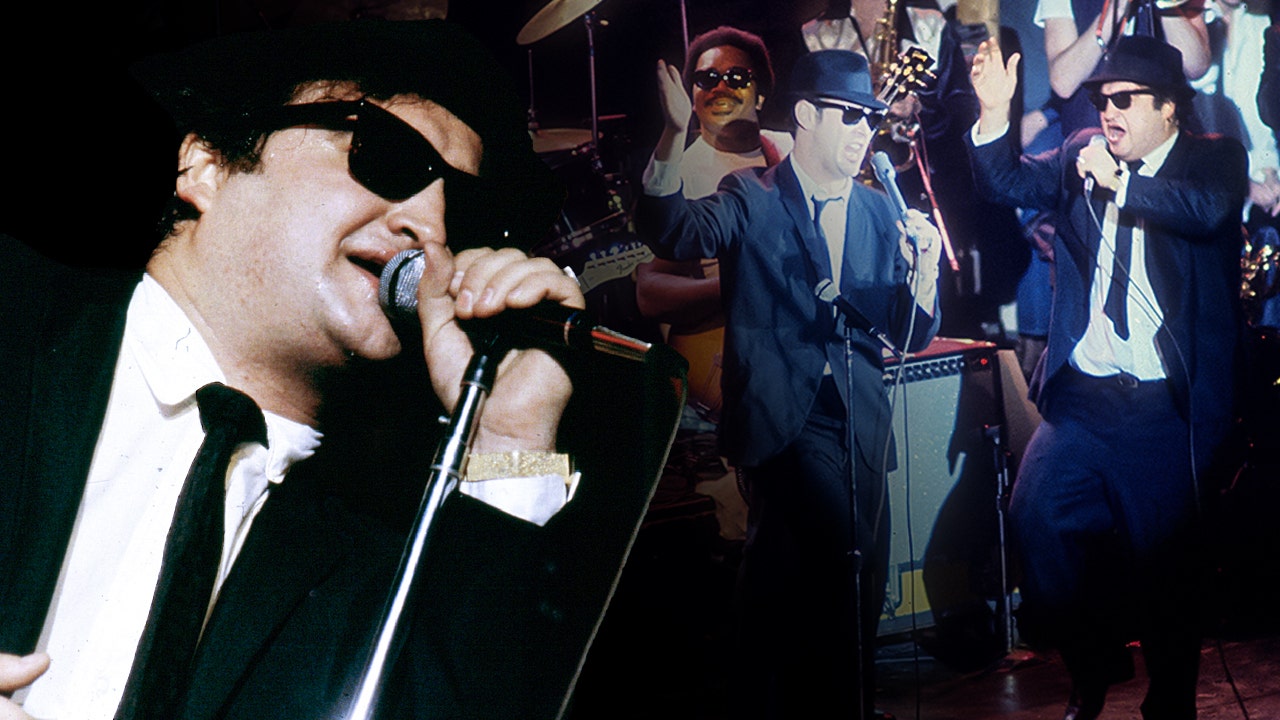Late comedian John Belushi formed the Blues Brothers with Dan Aykroyd in the late ’70s for “Saturday Night Live,” unknowingly creating a cult classic duo for the ages.
As the musical pair gained popularity, appearing in weekly sketches, their celebrity status was cemented once “The Blues Brothers” movie was released in 1980.
But not all pop culture enthusiasts were fans of the singing duo. In an unearthed 1979 interview shared for the first time as part of the Audible documentary, “Blues Brothers: The Arc of Gratitude,” Belushi responded to criticism the band received as White men occupying spaces in the blues culture, which was predominantly spearheaded by Black artists.
EDDIE MURPHY TURNED DOWN DRUGS WITH ROBIN WILLIAMS, JOHN BELUSHI: ‘GOD WAS LOOKING OVER ME’
John Belushi defended the Blues Brothers in a newly released interview. (Getty Images)
Soho Weekly News music critic Steve Bloom in 1979 shared headlines with Belushi, some stating, “Can Belushi sing the whites?” and “Why the Brothers ain’t got no blues.”
“It’s just weird, you know?” Belushi said. “Why would I do these things? The people watching me understand why I do it, and the band members do. The other people – there’s a certain amount of jealousy, I think, involved. … Why do I do what I do? First of all, it has nothing to do with ego, it has nothing to do with money, you know, or the need to be loved by an audience. I don’t have any of those feelings.”
JOHN BELUSHI’S WIDOW, ACTRESS, PRODUCER JUDY BELUSHI-PISANO, DEAD AT 73
He continued, “What the f— do these people think I am, anyway? I can’t f—ing understand why they would attack – see, when they attack me, they attack the band, and I hate when they attack the band, because then it makes them look like schmucks for doing what they did for me.”
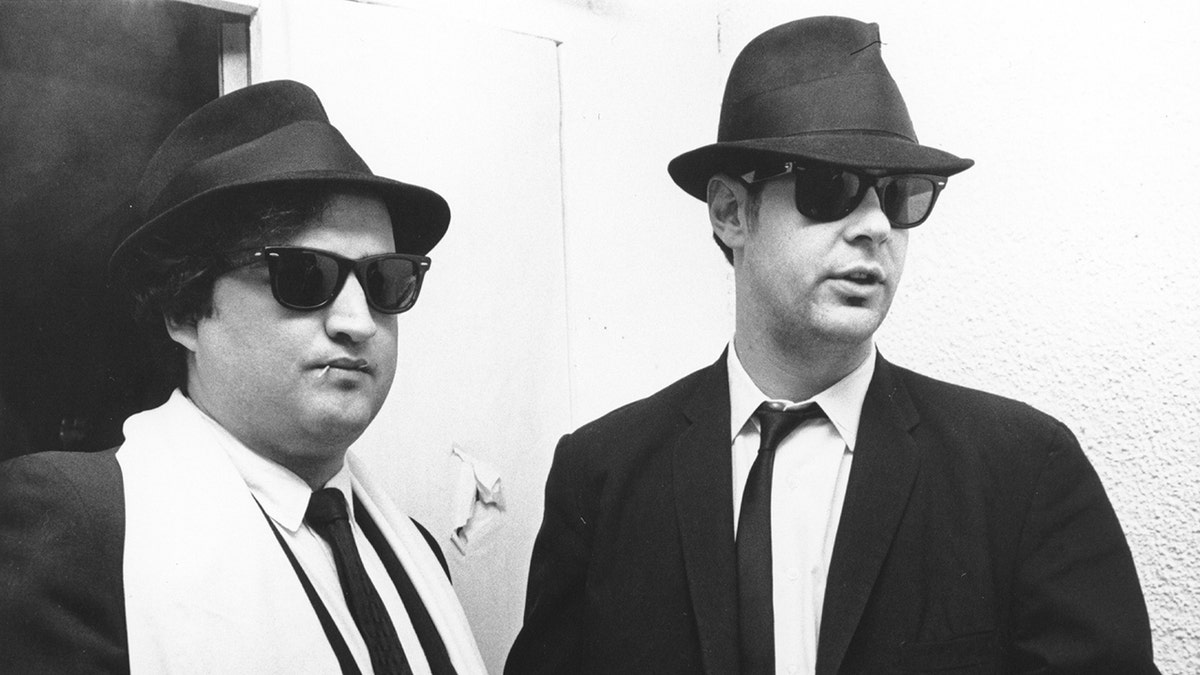
Belushi, left, and Aykroyd founded the famous duo in the late ’70s for “Saturday Night Live.” (Getty Images)
Bloom believed critics were “attacking” Belushi.
“You see, there’s a long line of cases where White musicians play Black music and make money while the Black musicians don’t make the money, supposedly,” Bloom said.
“Why do I do what I do? First of all, it has nothing to do with ego, it has nothing to do with money, you know, or the need to be loved by an audience. I don’t have any of those feelings.”
“That’s not the purpose of the Blues Brothers,” Belushi said. “I say on the record, ‘Buy as many blues records as you can.’ [I] introduce my band, which is never done. I share the stage with each member of the group, which is never done. I have Danny Aykroyd, you know; we all split everything right down the middle. I give the people, artists parts of the album. I’m putting them in a movie, you know? Nobody believes me.”
He added, “I’m not f—ing fantastic, but that’s not the point.”
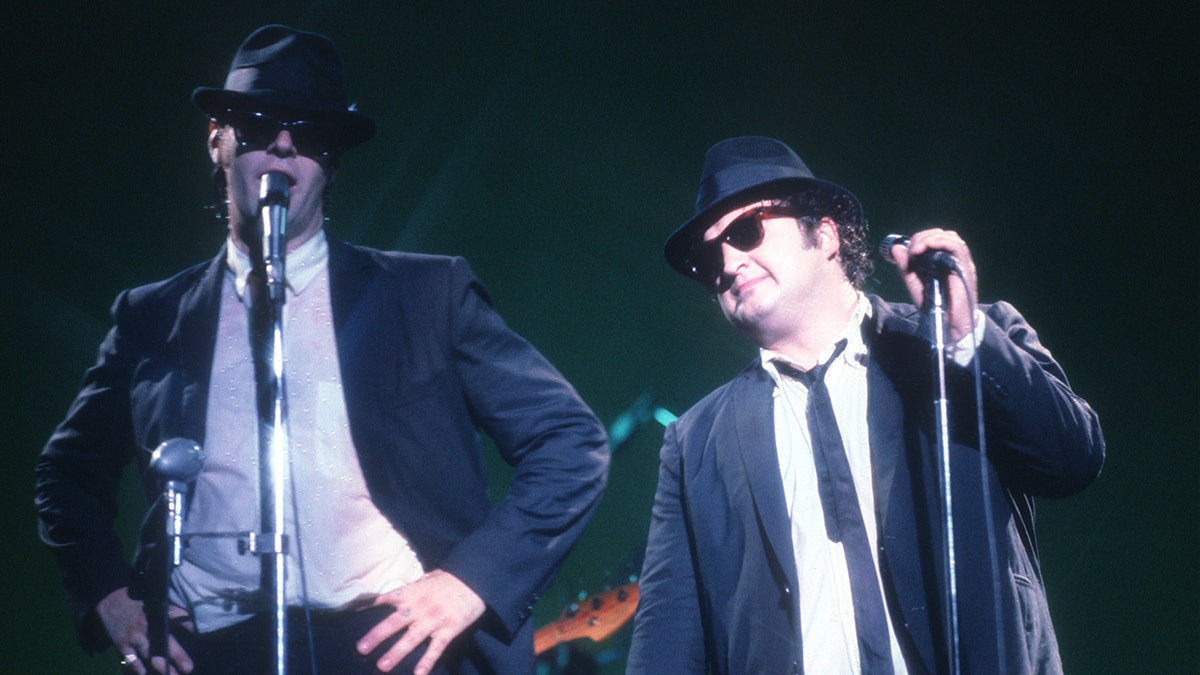
Belushi believed the Blues Brothers criticism was “weird.” (Getty Images)
Three years after the interview, Belushi died of an overdose at the famous Chateau Marmont on Sunset Boulevard in Los Angeles in 1982. He was 33.
The night before Belushi’s death – March 4, 1982 – a book titled “The Castle on Sunset,” claimed he partied with friends Robert De Niro and Robin Williams as well as a woman named Kathy Smith. She later pleaded guilty to involuntary manslaughter for supplying the comedian with his last fatal doses of cocaine and heroin, according to a report on the book.
Belushi’s manager informed Aykroyd of his death, and De Niro – who found out after calling the hotel numerous times – reportedly dropped the phone and cried when he realized what had happened. The hotel remodeled the room, hoping to avoid cult status, but their efforts failed, and tours of Hollywood’s most notorious incidents frequent the hotel. To this day, Chateau Marmont is still synonymous with Belushi’s death.
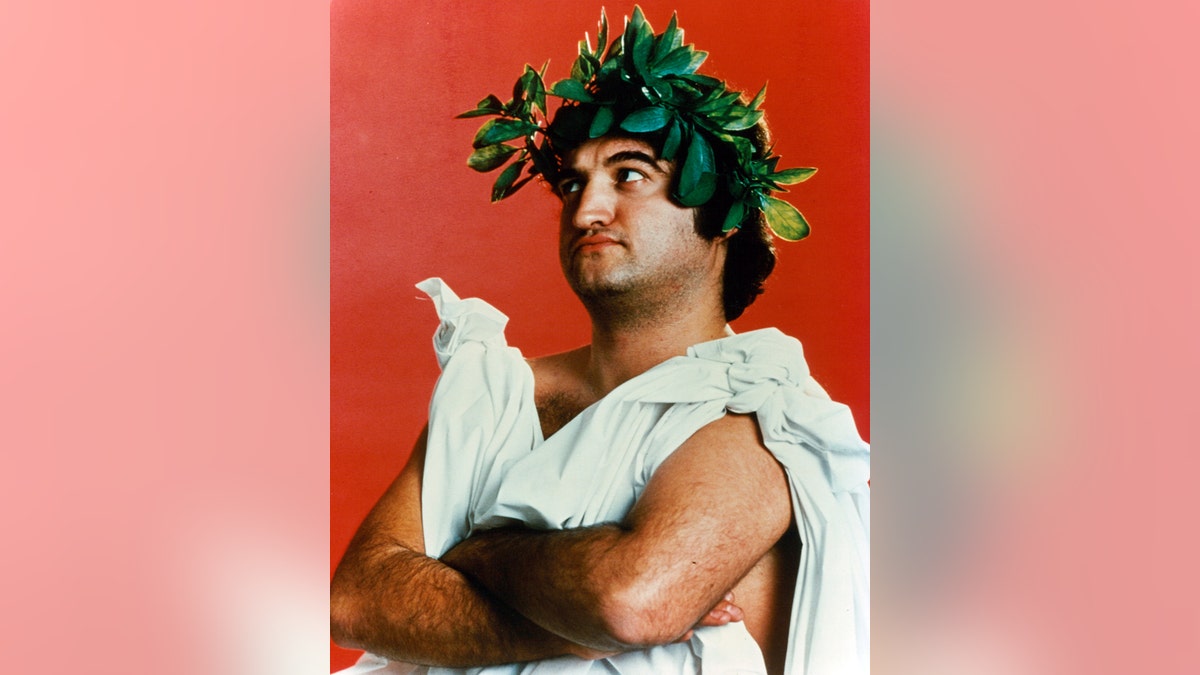
“Animal House” star John Belushi died of an overdose in 1982. (Getty Images)
“After a night of drinking brandy, smoking cigarettes and consuming cocaine, John succumbed in Bungalow 3 of the Chateau Marmont in L.A. to a non-self-administered injection of mixed cocaine and heroin, commonly known as a speedball,” Aykroyd says in the Audible sound clip. “He was 33 years of age. I was 29.”
Dan had been working on the “Ghostbusters” script in New York when he received the call about Belushi’s death from their agent, Bernie Brillstein.
LIKE WHAT YOU’RE READING? CLICK HERE FOR MORE ENTERTAINMENT NEWS
“After a night of drinking brandy, smoking cigarettes and consuming cocaine, John succumbed in Bungalow 3 of the Chateau Marmont in L.A. to a non-self-administered injection of mixed cocaine and heroin, commonly known as a speedball.”
“My first impulse was to find [John’s wife, Judy] as soon as possible, running down the entire length of Fifth Avenue to their townhouse on Morton Street,” he said. “Arriving at Judy’s house, I burst in and saw that she was standing at her fridge and did not know yet.”
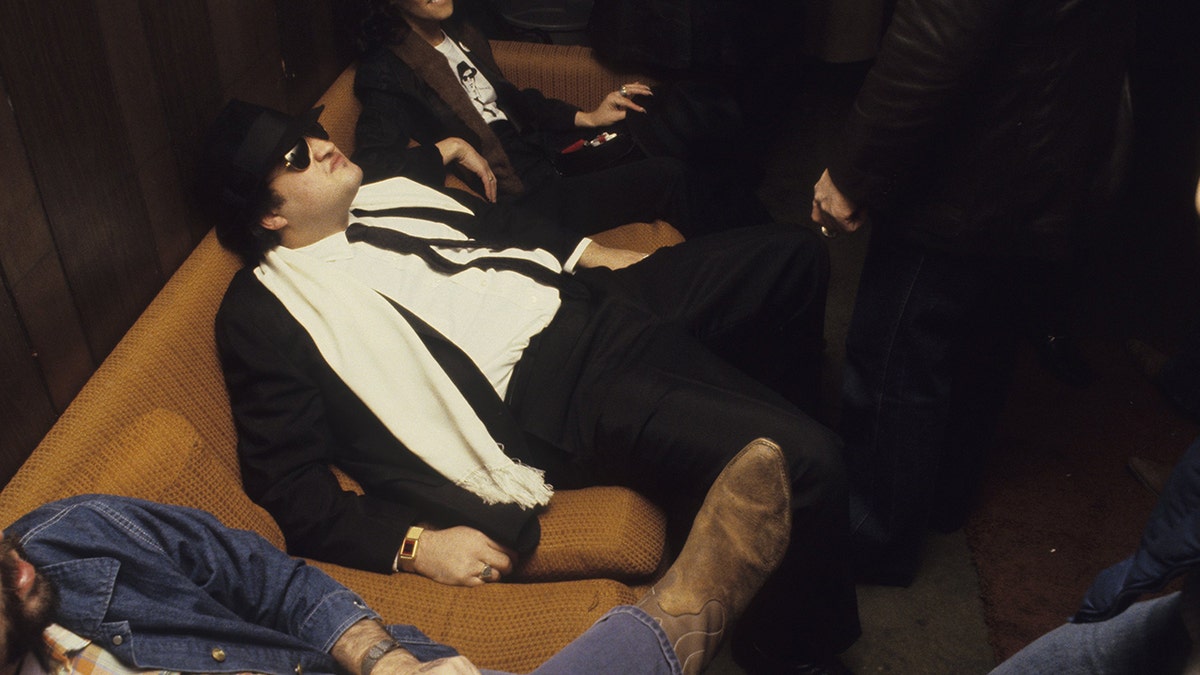
John Belushi, aka Jake Blues of The Blues Brothers, was known for his hard-partying ways. (Richard McCaffrey)
John’s now-late widow, Judy Belushi Pisano, says in the audio, “We had a push-button lock, and I could hear someone pushing the buttons. I thought, ‘Oh no, it’s too early for John to be back. And he would’ve called.’ Then Danny came in, and I just knew something was wrong by the way he was standing.”
She added, “He sort of started to say something and not be able to say it. And he said, ‘I don’t know how to tell you.’ And I kind of like grabbed him and said, ‘Has he been hurt?’ And he said, ‘No, honey, he’s dead.'”
CLICK HERE TO SIGN UP FOR THE ENTERTAINMENT NEWSLETTER
Aykroyd told People magazine that he was overcome with emotions when having to deliver the painful news.
“Having to tell Judy that John was gone, that I’ll never forget. That’s a piece of trauma that will be with me forever,” he said. “I lament that he’s not around. It’s more than wistfulness; it’s a true lamentation. Losing him set me back for a full year, but then I just wanted to go on and do more work and carry on.”
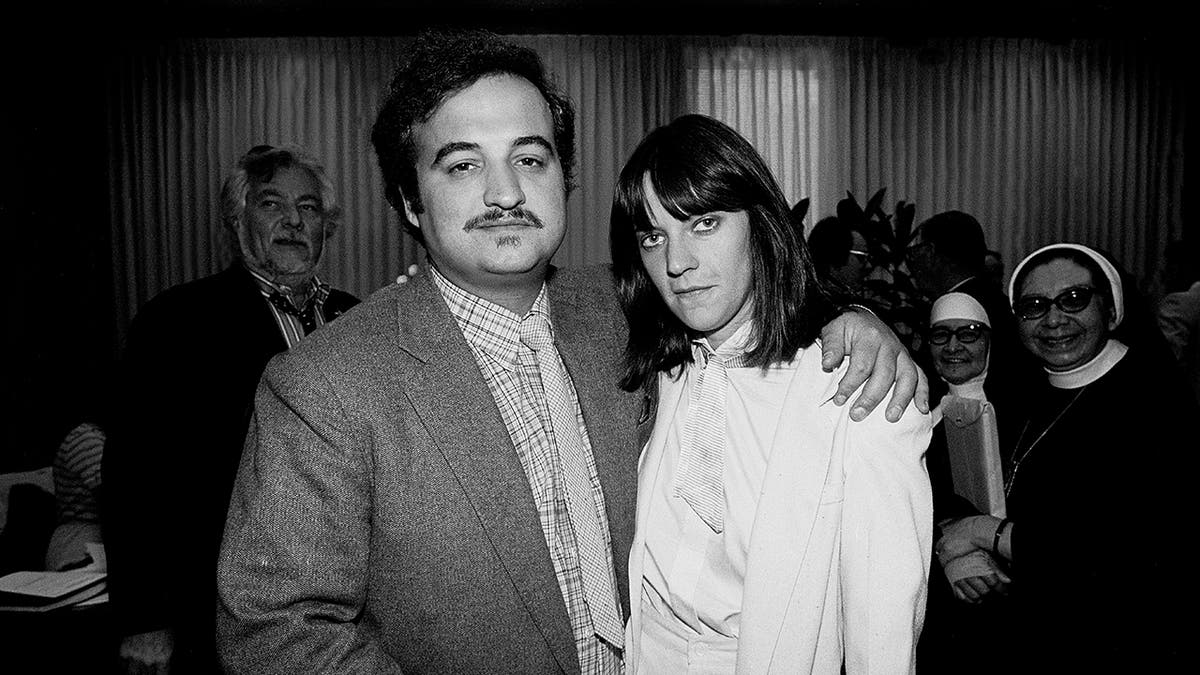
John and Judy Belushi met in high school and were married in 1976. (Paul Natkin)
In 2012, Aykroyd told Vanity Fair that filming the 1980 John Landis comedy with Belushi was anything but normal.
“We had a budget in the movie for cocaine for night shoots,” he said.
“Having to tell Judy that John was gone, that I’ll never forget. That’s a piece of trauma that will be with me forever.”
“Everyone did it, including me. Never to excess and not ever to where I wanted to buy it or have it. [But] John, he just loved what it did. It sort of brought him alive at night, that superpower feeling where you start to talk and converse and figure you can solve all the world’s problems.”
Belushi decided not to pursue rehab despite his addiction problems.
“I’m fine,” Belushi told Judy at the time. “I can’t stop now until I finish the movie. It’ll be fine when it’s over.”

